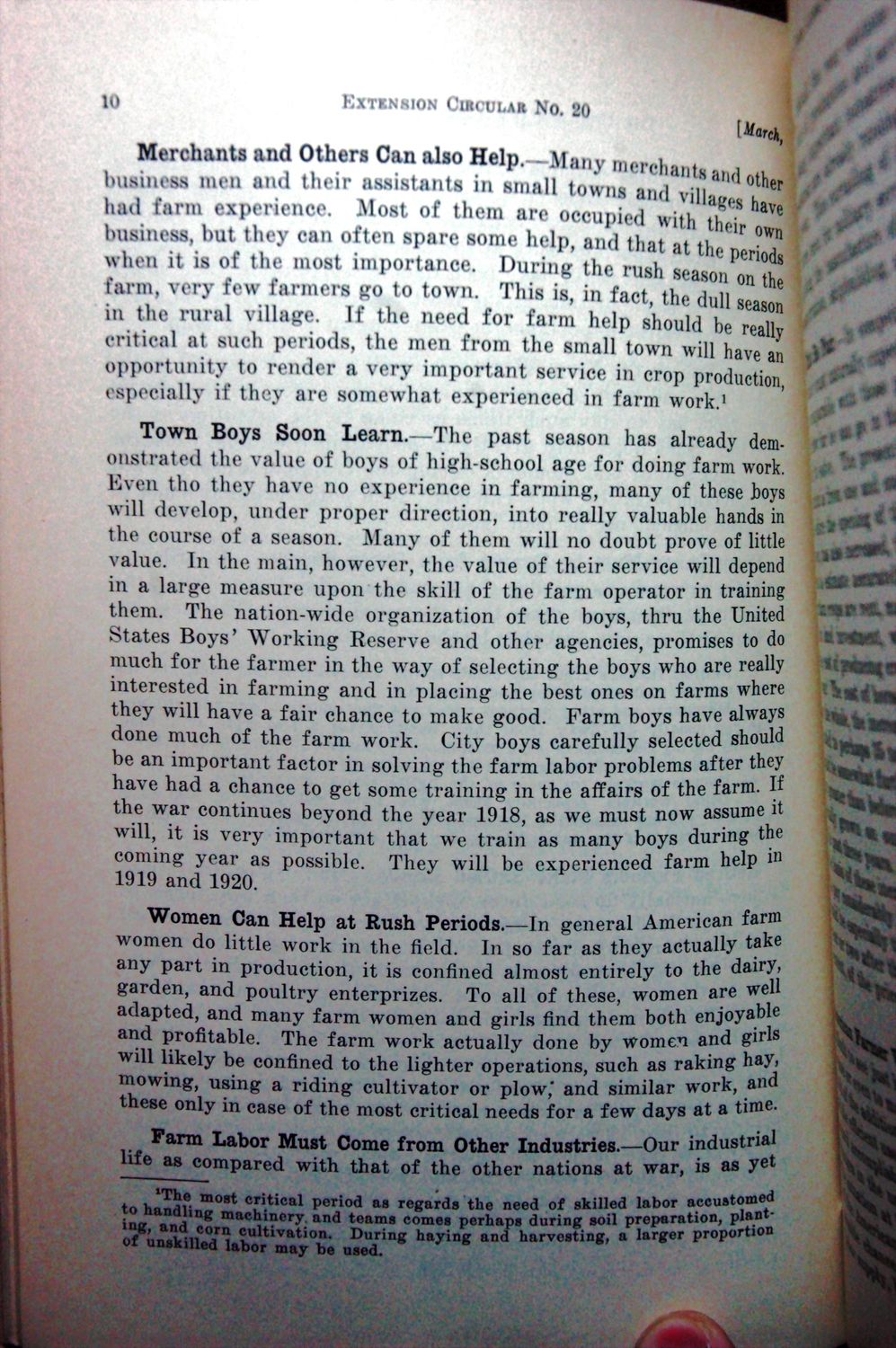| |
| |
Caption: War Publications - WWI Compilation 1923 - Article 28
This is a reduced-resolution page image for fast online browsing.

EXTRACTED TEXT FROM PAGE:
4 10 EXTENSION Cacuuu *t ijn I *a,d / also Help. M; othep ep business men and their assistants in small town* .,„i\. •,, smiill towns md vill ;S have had lann experience. Most of them are occupied win. if Imsmess. but they can often spare some help, ami that at the l[Z wh,n it is of the most ..nportance. During the rush season nn ! ? farm, very few fanners go to town. This is, in fact the dull I V A ^ i*th V „„a^ / i* ' A critical at such periods, the men from the small town will have an opportunity to render a very important service in crop production 1 especially if they are somewhat experienced in farm work. ' Town Boys Soon Learn.—The past season has already demonstratod the value of hoys of high-school age for doing farm work. Hven tho they have no experience in farming, many of these hoys will develop, under proper direction, into really valuable hands in the course of a season. Many of them will no doubt prove of little value. In the main, however, the value of their service will depend in a large measure upon the skill of the farm operator in training them. The nation-wide organization of the boys, thru the United States Boys' Working Reserve and other agencies, promises to do much for the farmer in the way of selecting the boys who are really interested in farming and in placing the best ones on farms where they will have a fair chance to make good. Farm boys have always done much of the farm work. City boys carefully selected should be an important factor in solving the farm labor problems after they have had a chance to get some training in the affairs of the farm. If the war continues beyond the year 1918, as we must now assume it will, it is very important that we train as many boys during the coming year as possible. They will be experienced farm help in 1919 and 1920. Women Can Help at Rush Periods.—In general American farm women do little work in the field. In so far as they actually take any part in production, it is confined almost entirely to the dairy, garden, and poultry enterprizes. To all of these, women are well adapted, and ^M.^M.M.J xaiiu nuiucji a ugirls nfind m mem uum ^**j~^ . ~ many farm women and u g i s m them both enjoyable and profitable. The farm work actually done by women and girls will hkely be confined to the lighter operations, such as raking hay, mowing, using a riding cultivator or plow,' and similar work, and these only in case of the most critical needs for a few days at a time. Farm Our industrial nations 7 V,^ •«•<! a *1 T * • « . « IMML 1 *'naa(e i^ *). \ y The moat critical period as regards the need of skilled labor accustomed to handl g m a c h i n e r y and teams comes perhaps during soil preparation, plantintr o„Ji ultivation D orunskille'd'l £ u " n g haying and harvesting, a larger proportion
| |